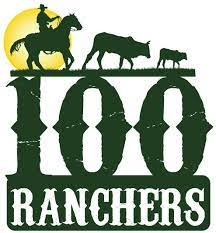Kimberly Ratcliff was appointed by Greg Abbott to the Governor’s Commission for Women. Ms. Ratcliff is an African-American entrepreneur, rancher, and advocate for Black ranchers based in Oakwood, Texas. Kimberly Ratcliff makes things happen.
PHIT recently interviewed this esteemed entrepreneur and rancher as part of our Hightower Legacy. She is too young to have been part of the Hightower TDA administration. But… Cather Woods, who was involved with the Black Farmers Conferences, and is also an entrepreneur and advocate in her own right, insisted that we talk to this woman who is “a direct legacy of the spirit of those conferences.”
Ratcliff helped set up and once served as president of 100 Ranchers, a non-profit that promotes local agriculture. 100 Ranchers is based in Oakwood, a small village right outside of Palestine. The area around Oakwood has more per capita Black ranchers than any other area in the nation.
Cather Woods was the other key player in setting up 100 Ranchers as an outreach tool to aid and support Black ranchers. The non-profit is composed of more than 100 ranchers now, and the membership includes ranchers other than African Americans. 100 Ranchers has been quite an effective voice in advocating for small ranchers.
Ms. Ratcliff quit her New York job of running commodity markets for Bloomberg to come home to help in the new ranching business her family had set up. She applied to the TCU Ranch Management program and was the first African American to attend and graduate.
She and Cather Woods then helped create 100 Ranchers. “We started going through each other's operation and we would ask questions like ‘What are you guys having a hard time with?’ Let's do a workshop around that producers’ barrier.”
They found that one of the biggest barriers was market access. Ranchers needed to get the cattle to the market where they needed to be and that wasn’t easy for small operations.
Ms. Ratcliff set up resources to allow ranchers to cooperate in marketing the cattle together. “We would sell them by the truckload to major buyers. In that process I would maybe keep a couple and start feeding them for my own. So there's the start of the feeding.”
Ms. Ratcliff now has her own corporation, Farm to Freezer. She started at a farmers market, then she added a website. Then she expanded even further. “Now, I have contracts, huge contracts. The Houston Food Bank. I have a contract in Washington DC. I literally just got off the phone call with a major restaurant chain and I'm possibly going to sell to major league stadiums, like the Dallas Mavericks or the Rockets stadium. So I'm really expanding, but the philosophy of what the original 100 Ranchers is still holds true with my meat company. You understand? I'm still buying local cattle.”
In an interview with YES! magazine, Cather Woods suggested “…joining community- and land-based organizations or starting one if they don’t exist. And… Serve on committees. That’s where the real knowledge comes in. They’re only going to tell you so much, but if you’re there when the changes take place, you can pass this information on,” says Woods.
Ms. Ratcliff is currently looking for diversification possibilities for ranchers. She is part of a process that uses ranch land for solar power farms. And she is providing information to the local community about what the real prices should be.
This a model that could be scaled up. This is a model that would work on a local level for all Texas small producers.
Kimberly Ratcliff makes things happen.
PHIT likes to remember history but we also like to record history in the making.
Be sure to view our new short video on Black Farmers and Hightower.






